|
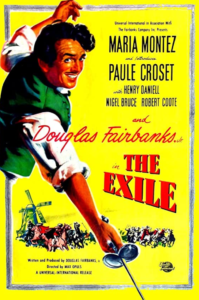
Synopsis:
While living in exile in Holland, King Charles Stuart (Douglas Fairbanks, Jr.) falls in love with a local farmer (Rita Corday) and tries to escape the clutches of his enemies, the puritanical Roundheads (led by Henry Daniell).
|
|
Genres, Themes, Actors, and Directors:
- Cross-Class Romance
- Douglas Fairbanks, Jr. Films
- Henry Daniell Films
- Historical Drama
- Max Ophuls Films
- Mistaken or Hidden Identities
- Royalty and Nobility
Review:
Douglas Fairbanks, Jr., wrote, produced, and starred in this Anglophilic imagining (based on Cosmo Hamilton’s novel His Majesty, the King) of King Charles Stuart II’s life in exile before the Restoration in 1660. The plot focuses primarily on Stuart’s (fictional) romance with a Dutch girl (Corday), and, ultimately, his dilemma over whether to maintain his blissful working class existence with her, or return to the throne of England to serve his “larger” purpose in life. In the meantime, the indomitable Charles is pursued by Oliver Cromwell’s supporters (embodied primarily by the bloodthirsty character of black-hatted Colonel Ingram — a perfectly cast Henry Daniell), and must persuade Corday that a former flame (Maria Montez) no longer holds any sway over his heart. [Montez is simply delightful — and typically over-the-top — in her few shorts scenes midway through the film.] Fortunately, director Max Ophuls (in his first American production) adds his inimitable touch to the proceedings, elevating what would otherwise be a mundane historical drama into something slightly more involving; by the end of the film, we can’t help caring about Charles and the fate of his country.
Redeeming Qualities and Moments:
- Douglas Fairbanks, Jr. as exiled King Charles
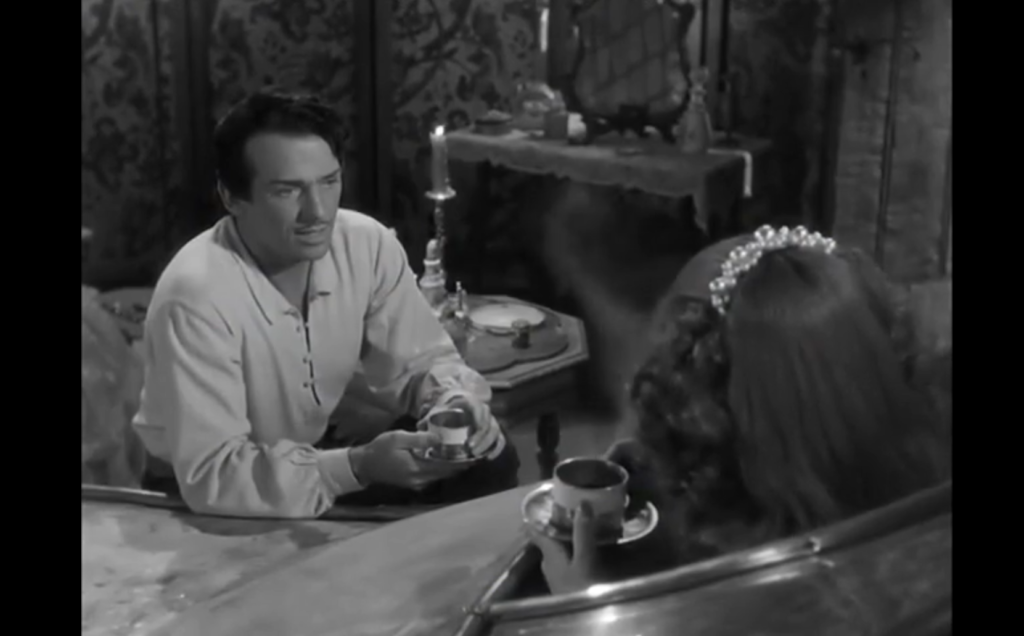
- Rita Corday as Katie
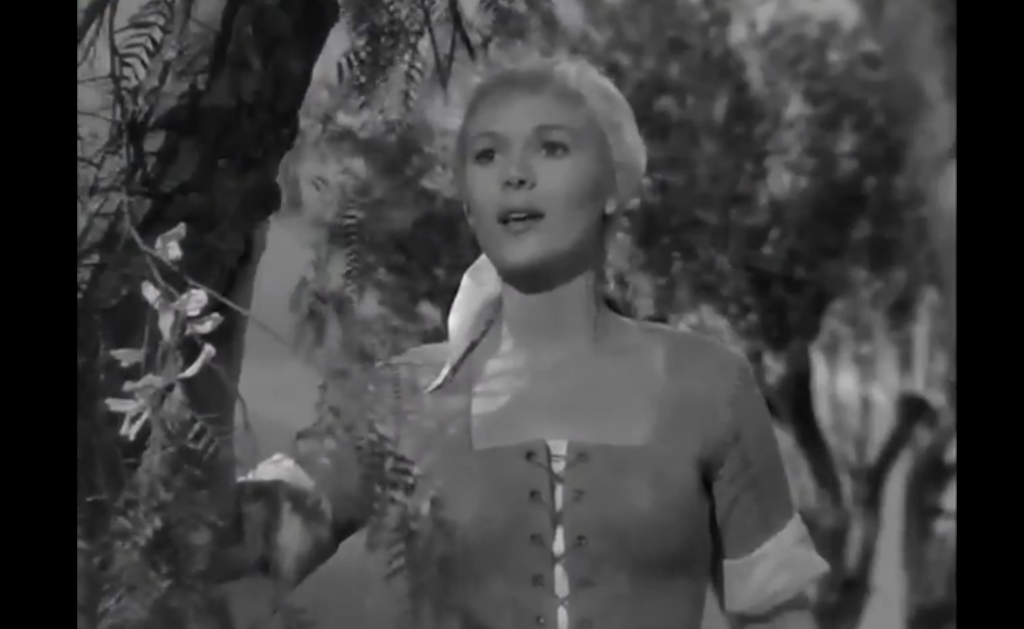
- Maria Montez as a visiting French countess
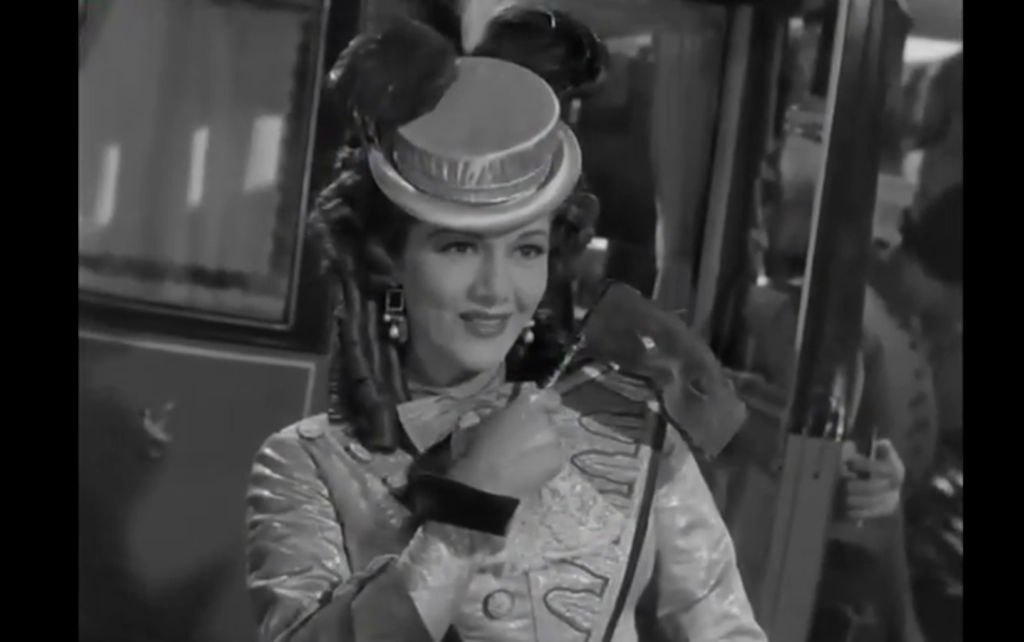
- Henry Daniell as Colonel Ingram
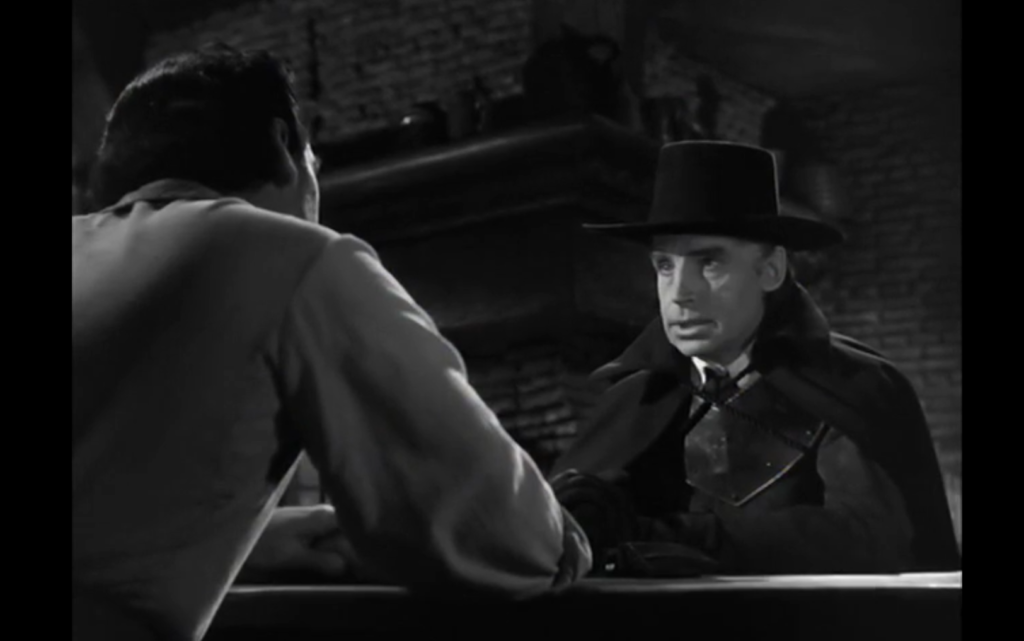
- Ophuls’ unique directorial touch
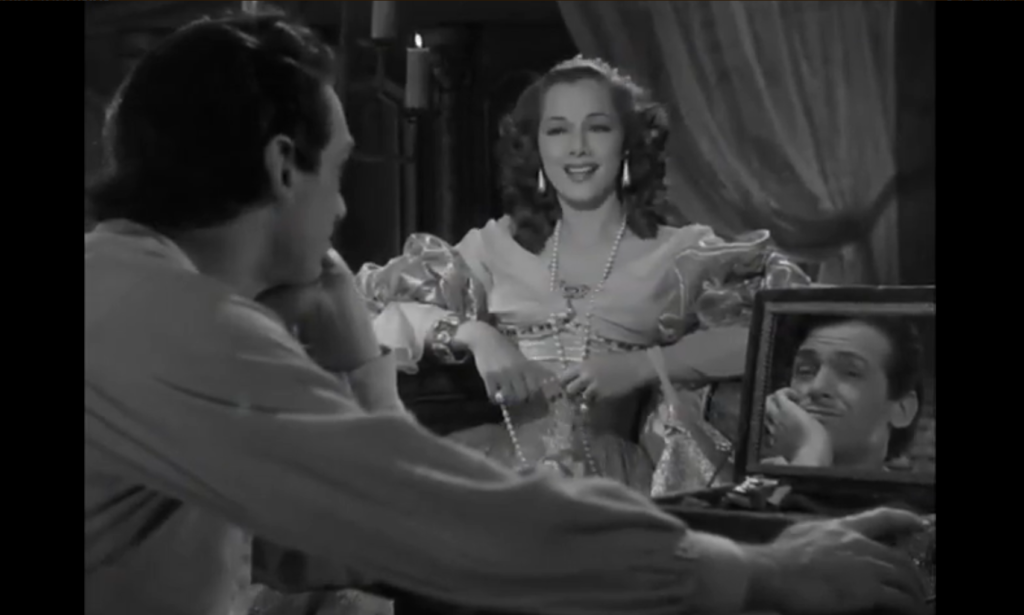
- Atmospheric cinematography
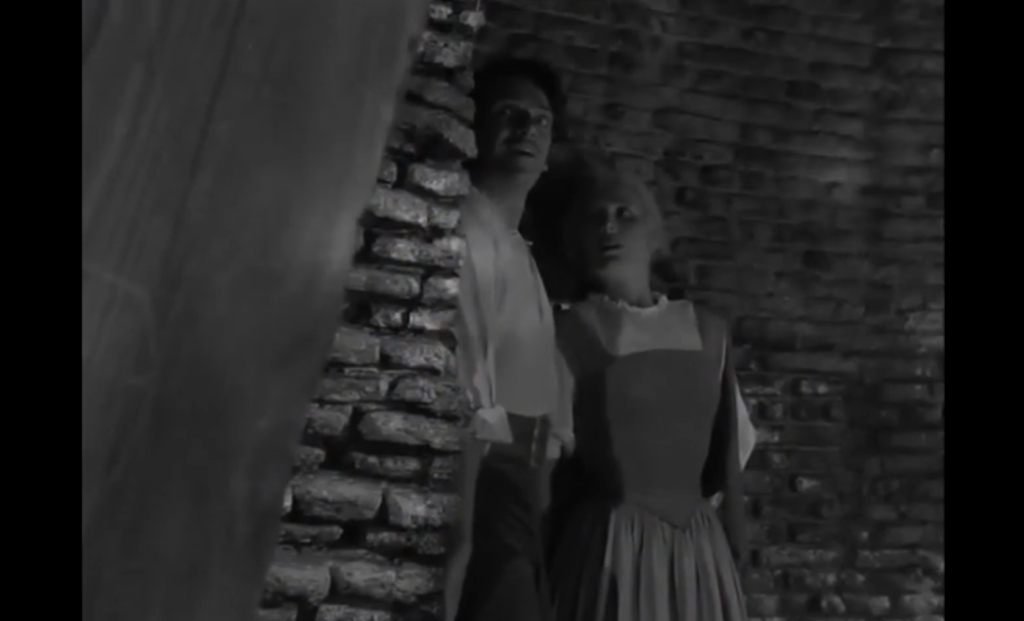
Must See?
No, but it’s certainly worth a look.
Links:
|







One thought on “Exile, The (1947)”
First viewing. Agreed, not a must – but certainly an engaging introduction to the work of director Ophuls, whose most famous films trailed this one. As stated, this is a much better work with Ophuls (and esp. his sweeping camera) at the helm. Without him, it would have the look and feel of a number of respectable but dull historical biopics. I can’t say ‘The Exile’ itself would have been “mundane” without Ophuls directing, but it would certainly be a lesser film.
Fairbanks, Jr. wrote himself a rollicking, romantic and noble role and, as producer, saw that the production was served up with all the classy trimmings. The script seems meant to crowd-please and, as a result, is a bit paint-by-number. Still, it’s efficient and often effective (esp. as it builds to the rousing fight sequence in the windmill).
The film sports a fine cast overall. Corday is rather pleasant throughout, but the more memorable turns are handed in by Nigel Bruce, the deliciously vile Daniell and, of course, Ms. Montez. La Montez actually seems to exit the film about four or five times – and the feeling is that she can’t quite bring herself to leave the screen and has asked Fairbanks the writer to keep bringing her back. Fortunately, her last re-entrance is connected to the plot.
This is definitely one that TCM should (re?-)discover and make available to ffs. Not wildly memorable perhaps but, as stated, worth a look.